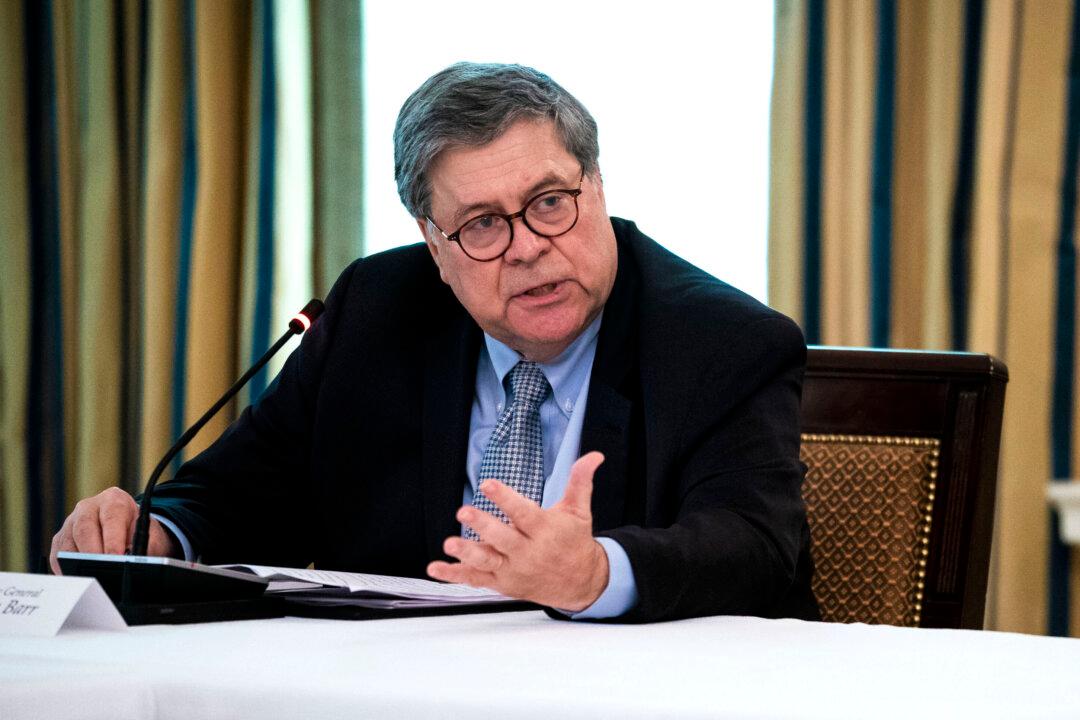Attorney General William Barr said he expects some “developments” later this summer in U.S Attorney John Durham’s investigation into the origins of the FBI’s counterintelligence Russia probe.
Barr said Durham has been pressing ahead with his investigation “as hard as he can,” despite facing barriers posed by the CCP virus pandemic, which had delayed some aspects of the probe.




